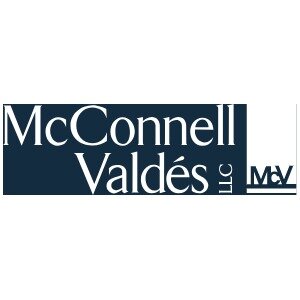Best Land Use & Zoning Lawyers in Puerto Rico
Share your needs with us, get contacted by law firms.
Free. Takes 2 min.
Free Guide to Hiring a Real Estate Lawyer
Or refine your search by selecting a city:
List of the best lawyers in Puerto Rico
About Land Use & Zoning Law in Puerto Rico
Land Use & Zoning laws in Puerto Rico are crucial in defining how land can be used, developed, and maintained. These laws are designed to ensure orderly growth, economic development, environmental protection, and the well-being of communities. Zoning laws typically categorize land into specific zones such as residential, commercial, industrial, and agricultural, and dictate the types of activities permissible within each zone. In Puerto Rico, these regulations align with the island's unique geographic, economic, and cultural contexts, further influenced by both local laws and U.S. federal regulations.
Why You May Need a Lawyer
Legal assistance in Land Use & Zoning is often necessary in several situations, such as:
- Seeking to change the zoning designation of a parcel of land.
- Handling disputes between property owners and municipal authorities regarding permissible land use.
- Navigating the complexities of obtaining necessary permits for construction or development.
- Interpreting complex regulations that impact property development and land use.
- Representing interests in public hearings regarding ordinances or zoning changes.
- Challenging enforcement actions for zoning or land use violations.
Local Laws Overview
Puerto Rico's land use and zoning laws are governed by guidelines like the Puerto Rico Planning Board regulations and the Autonomous Municipalities Act. Key aspects include:
- Zoning Codes: These specify the use, density, and design requirements for land across different municipalities.
- Permits: Required for construction, development, or modification of land uses, including environmental impact statements for larger developments.
- Land Use Plans: Each municipality has a Plan de Ordenamiento Territorial (Territorial Order Plan) to guide development and land use.
- Environmental Regulations: Complying with state and federal environmental laws, such as the Environmental Public Policy Act, is crucial.
Frequently Asked Questions
What is the purpose of zoning laws?
Zoning laws help in organizing urban growth, protecting property values, minimizing conflicts between land uses, and ensuring community health and safety.
Can I change the zoning classification of my property in Puerto Rico?
Yes, but it requires a formal request to the relevant local authorities, which can be a complex process often necessitating legal assistance.
What are the steps to obtain a construction permit?
Typically, you need to submit an application to the Oficina de Gerencia de Permisos (OGPe), including detailed plans and environmental assessments. It’s advisable to consult with a lawyer to navigate this process.
What is an environmental impact statement, and when is it required?
An Environmental Impact Statement (EIS) is a document required for projects with significant environmental effects, assessing the potential impact of the project and suggesting mitigation measures.
How does zoning affect property value in Puerto Rico?
Zoning can greatly affect property values by prescribing allowable uses, thus affecting the type and intensity of development that can occur on the land.
What happens if I violate zoning laws?
Violating zoning laws can result in fines, legal action, or orders to cease and desist certain activities or to dismantle improvements. Legal representation is advisable in such cases.
Are there differences in zoning laws across municipalities in Puerto Rico?
Yes, each municipality can establish its zoning codes, which may differ in terms of usage, restrictions, and requirements, based on local needs and priorities.
What role does the Planning Board play in zoning in Puerto Rico?
The Planning Board oversees broader land use and development policies and ensures that municipal requirements align with regional and commonwealth mandates.
Can historical buildings be affected by zoning regulations?
Yes, historical buildings often fall under special regulations to preserve their status, meaning zoning laws must be compatible with historic preservation requirements.
What is the first step if I want to develop my land in Puerto Rico?
Start by researching the current zoning classification and permissible uses of your property. It is advisable to consult with a legal expert to ensure compliance with applicable regulations.
Additional Resources
Here are some useful resources related to Land Use & Zoning in Puerto Rico:
- Puerto Rico Planning Board (Junta de Planificación de Puerto Rico)
- Office of Permit Management (Oficina de Gerencia de Permisos - OGPe)
- Puerto Rico Department of Natural and Environmental Resources
- Local Municipal Planning Offices
- Local legal professionals specializing in Land Use & Zoning
Next Steps
If you need legal assistance with Land Use & Zoning in Puerto Rico:
- Consult with experienced attorneys who specialize in land use and zoning laws. They can help interpret and navigate the complexities of local regulations.
- Gather all relevant documentation related to your property, such as deeds, permits, and previous communications with municipal authorities.
- Consider reaching out to local municipal offices for preliminary advice and to understand any particular requirements of your municipal zoning ordinance.
Taking these steps can help ensure that your land use or development project is legally compliant and successfully executed in Puerto Rico.
Lawzana helps you find the best lawyers and law firms in Puerto Rico through a curated and pre-screened list of qualified legal professionals. Our platform offers rankings and detailed profiles of attorneys and law firms, allowing you to compare based on practice areas, including Land Use & Zoning, experience, and client feedback.
Each profile includes a description of the firm's areas of practice, client reviews, team members and partners, year of establishment, spoken languages, office locations, contact information, social media presence, and any published articles or resources. Most firms on our platform speak English and are experienced in both local and international legal matters.
Get a quote from top-rated law firms in Puerto Rico — quickly, securely, and without unnecessary hassle.
Disclaimer:
The information provided on this page is for general informational purposes only and does not constitute legal advice. While we strive to ensure the accuracy and relevance of the content, legal information may change over time, and interpretations of the law can vary. You should always consult with a qualified legal professional for advice specific to your situation.
We disclaim all liability for actions taken or not taken based on the content of this page. If you believe any information is incorrect or outdated, please contact us, and we will review and update it where appropriate.
Browse land use & zoning law firms by city in Puerto Rico
Refine your search by selecting a city.









